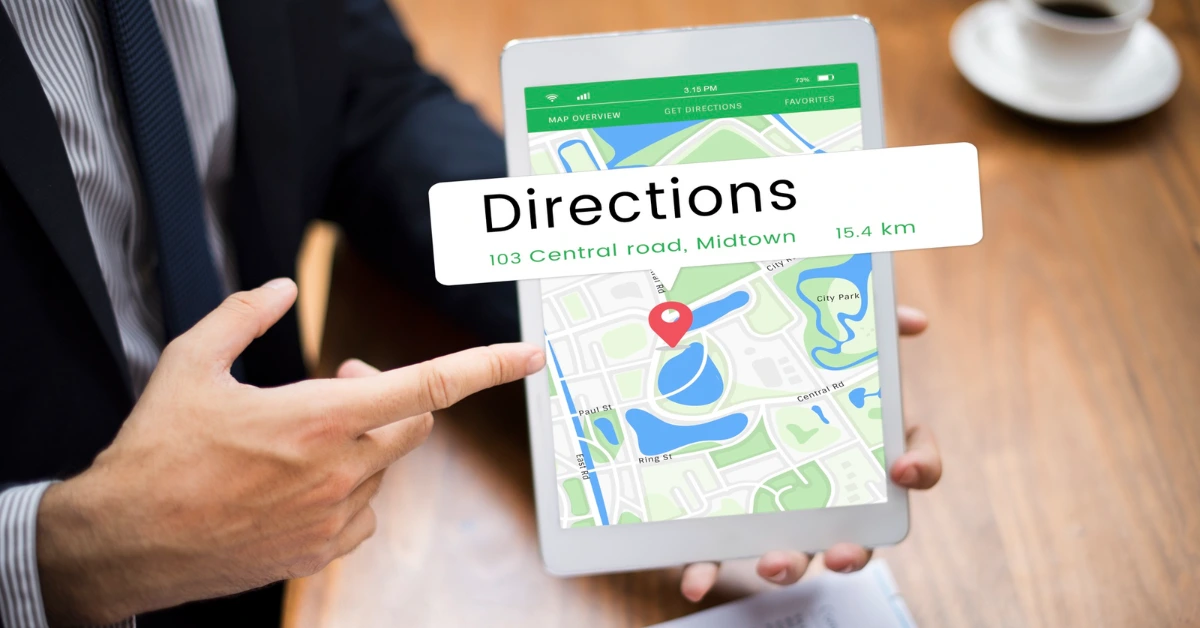White label WordPress maintenance means using a third-party provider to handle ongoing site care (updates, backups, security, etc.) and rebranding those services as your own. In other words, an agency or freelancer “takes a product or service created by another company and rebrands it as its own”. This lets you expand your offerings without extra development work. For example, Blog Vault explains that white-label services allow agencies to broaden their offerings without building everything from scratch, saving time and letting businesses focus on their core strengths. In practice, a white label WordPress maintenance service is an ongoing care plan for clients’ sites that your agency resells under your brand. These services matter because they free you to focus on growth: agencies can promise clients 24/7 support and regular updates without hiring more staff.
White Label WordPress Support
White label WordPress support means outsourcing your help desk and technical support tasks under your agency’s name. In this setup, a partner company handles client requests, bug fixes, content edits, and troubleshooting while using your branding. For example, WP Buffs notes that they can connect one of your agency’s email addresses to their help desk so every support email uses your logo and signature. In practice, this means when a client emails for help or a site edit, the white-label partner answers as if they were your in-house team. This approach lets your agency “never say ‘no’ to any client”, since the white-label team handles the extra workload.

Key support features often include:
- Help Desk Access: Full ticketing dashboard so you can monitor requests in real-time. The partner routes all client tickets through your brand email (e.g. support@yourcompany.com).
- 24/7 Availability: Ongoing monitoring and on-call support so issues get fixed quickly (even outside business hours).
- Routine Site Edits: Handling minor tasks like content changes, image updates or page tweaks on request.
- Communication Branding: All reports and emails come from your agency name/logo, maintaining the illusion that your team is doing the work.
How does white label website support work? In practice, your agency simply signs clients up for a care plan and passes the work orders to the partner. The partner logs in behind the scenes, performs updates or fixes, and then sends a branded report back. As WP Buffs explains, this might include “white-label reports every week… with security scans, speed optimization, updates, etc.”. Agencies then share those reports with clients as their own, ensuring transparency and trust without revealing the actual service provider.
White Label WordPress Care Plans
A WordPress care plan (maintenance plan) is a monthly subscription covering all routine tasks to keep sites healthy. White-label care plans are packaged and marketed under your brand, but fulfilled by the partner. A typical plan includes the following services:

- Regular Backups: Automated off-site backups of the entire site (files and database) so you can restore to any point if something breaks.
- Core & Plugin Updates: Prompt updates for WordPress core, themes, and all plugins. Often updates are first tested in a staging site to avoid conflicts.
- Security Monitoring: Daily scans for malware or hacks and configuration of security/firewall measures.
- Uptime & Performance Monitoring: Continuous checks of site uptime (so you know immediately if the site goes down) and speed tests to catch slowdowns.
- Technical Support: Access to WordPress experts for troubleshooting or small edits; usually via tickets or email.
- Reporting & Optimization: Monthly or quarterly reports on site health, updates applied, traffic trends, and any issues fixed.
What’s included in a WordPress care plan?
Everything above – backups, updates, security, monitoring, and support – along with extras like database cleanup or SEO checks in some packages. Many plans even bundle managed hosting or content edits. For example, some white-label agencies include managed hosting on a secure server and daily security scans to ensure sites aren’t blacklisted.
Practical tip: Emphasize these features when selling to clients (“full backups, 24/7 monitoring, and security scans – all under our agency’s care”). Case Study: A marketing firm could offer “Gold Support” care plans for $100/month per site that promise “all updates, backups, and security monitoring” via a white-label provider, ensuring clients feel secure without the firm doing the hands-on work.
WordPress White Label Maintenance
In general, WordPress white-label maintenance covers all the behind-the-scenes upkeep for client sites. This includes not just updates and backups (as above) but also things like bug fixes, security patching, performance tuning, and proactive optimization. Agencies choose a white-label maintenance partner because it unlocks new offerings without extra staffing. As BlogVault explains, white-label maintenance can be “a huge boon” for firms that maintain many client sites – they can extend their service portfolio “without much sacrifice of time and developer resources”.

Why choose a white-label provider? Key reasons include:
- Scale Your Services: Offer maintenance or support for dozens of client sites (or hundreds) without hiring an internal team. The partner handles the workload.
- Expertise & Tools: Partners often have specialized security tools, staging environments, and experience that a small agency may lack. They can fix issues faster and more securely.
- Cost-Effectiveness: Paying a flat monthly fee per client site is usually cheaper than a full-time developer. You simply resell the service at a profit.
- Consistent Quality: Reputable white-label providers guarantee service levels (SLA), so sites stay updated and safe. For example, an agency can promise “speed, security, backups, and uptime monitoring” knowing the partner will deliver.
- Focus on Growth: With maintenance covered, agencies can “focus more on growing [their] business” instead of firefighting tech issues.
A small design agency launched a new offering called “Platinum Maintenance” by partnering with a white-label service. Whenever a client’s site needed a plugin update or a minor redesign, the agency simply created a support ticket. The white-label team implemented the change and emailed a branded update report. The client thought it was the agency’s own team working, while the agency could take on as many maintenance clients as they liked.
White Label WordPress Maintenance Plans
Maintenance plans are tiered packages that define what services clients get and at what price. When choosing or creating a white-label maintenance plan, consider the following factors:

- Included Services: Decide how many hours or tasks per month, number of sites covered, and which services (updates, support, edits) are included.
- Pricing Strategy: Plans might be priced per site or per block of hours. For example, some providers offer unlimited updates on one site for a fixed fee, while others charge by time.
- Service Levels: Different tiers (Basic, Standard, Premium) can vary by response time or feature set. Enterprise sites might need immediate support, while blogs can tolerate 24-hour fixes.
- Contract Terms: Check if there’s a minimum term or if plans are month-to-month. Many partners offer monthly and annual options (discounted for annual) for flexibility.
How to choose the best white-label maintenance plan?
First, assess your client’s needs and budget. For example, a small blog only needs basic security and backup, while an ecommerce site driving revenue requires 24/7 monitoring and fast support. WordPress’s own advice is to consider Budget, Business size, and Website complexity:
- Budget: Determine the value of uptime vs. cost. If downtime costs thousands per hour (like a store), invest in a top-tier plan. For low-budget sites, start with a basic plan and add on as needed.
- Business Size: A solo freelancer with one portfolio site needs a different plan than a medium business with dozens of pages. Larger operations often benefit from flexible plans with more features.
- Complexity: Sites with many plugins or custom code need more hands-on care. For high-complexity sites, choose a plan that includes performance optimization and manual QA.
Tip: Always read what the plan includes. For example, verify if one plan covers unlimited content edits or just maintenance, and whether it uses staging for updates. Good providers (like GoWP or WPBuffs) explicitly mention features like “updates, backups, security monitoring” in their plan descriptions. Comparing these details ensures you match the right plan to each client.
White Label Website Maintenance
White label website maintenance is similar to WordPress maintenance but can apply to any website platform (WordPress, Joomla, custom HTML, etc.). The key concept is the same: your agency offers ongoing site upkeep and support under your brand. How does this work? Often, the partner will handle tasks like plugin/theme updates, core patches (for WP), plus general upkeep such as:

- Content Updates: Adding or editing text/images as requested.
- Design Tweaks: Minor changes to site layout or styles.
- Hosting & Domain: Managing hosting servers or DNS settings if included.
- Platform-Specific Work: For non-WP sites, the partner’s team might update code or modules (e.g., maintain a Shopify store or a Drupal site).
How does white-label website support work?
Typically, you set up a communication channel (email or ticket system) through which clients send requests. The partner’s developers then log in to the client’s site or hosting, make the changes, and report back. For example, a white-label team might send you a weekly report covering “every detail related to updates and maintenance tasks” performed on each site. Your agency can forward these reports to clients to show progress (without revealing the partner’s identity). Many providers also let you use a branded email (like support@yourdomain.com) so all client correspondence remains under your label.
This model means your agency effectively resells comprehensive website care. You keep ownership of the client relationship while the partner handles the technical workload. As WPDepend puts it, clients appreciate that their sites are “well-functioned and maintained” by a professional team, even though the service is branded as if it came from your agency.
WordPress Maintenance White Label
The phrase “WordPress maintenance white label” refers to the same concept: agencies using an unbranded partner to provide maintenance. Anyone asking “What is white label WordPress maintenance?” would get the explanation above – it’s simply outsourcing maintenance in a way that keeps the service looking like your own.
Who needs white label WordPress services?
Typically, busy agencies, freelancers, and digital firms do. If you’re an entrepreneur or agency owner overwhelmed by client requests, a white-label service can be your fallback. For example, WpDepend notes that their white-label solutions are a “one-stop solution to freelancers and agencies who are tired of receiving tons of requests” for support. In practice, this includes:
- Design Agencies: Want to offer ongoing site care but lack a full-time developer.
- Marketing Firms: Need to keep multiple client sites updated and secure without building dev expertise in-house.
- Freelancers/Solopreneurs: Have skill in one area (e.g., SEO or graphic design) and want to upsell maintenance without personal technical work.
- Hosting Providers: Offer managed WordPress services under their brand using a specialized back-end team.
Ultimately, any business that sells website creation or marketing can add white-label maintenance to increase recurring revenue and client retention. Agencies find that by partnering with a white-label maintenance provider, they “free up time” from routine tasks (backups, updates, security patches) and use it to build customer relationships. It turns maintenance from a chore into a scalable service.
White Label WordPress Maintenance Services
White label WordPress maintenance services let tech-savvy agencies and freelancers sell peace of mind without doing all the coding themselves. By partnering with experts, you can offer 24/7 site monitoring, update services, and support plans under your own brand. Key benefits include predictable recurring revenue, happier clients, and more time to focus on your core business.
To recap some best practices when using white-label maintenance:
- Clearly outline what each care plan includes (updates, backups, security, support hours, etc.).
- Use descriptive names (e.g. “Silver Care Plan”) and market them as your unique offerings.
- Provide reports and communication from your agency’s domain to maintain brand consistency.
- Vet your partner’s reliability and make sure their services (speed optimization, uptime monitoring, security scans) match what you promise to clients.
- Educate clients on the benefits: emphasize that your agency is now providing proactive site health management (not just “we’ll fix it when it breaks”), including backup/restores and expert support.
By following these guidelines and leveraging the white-label maintenance model, your digital agency can scale efficiently. As more clients demand ongoing support, white-label maintenance services become an indispensable tool – keeping WordPress sites secure and up-to-date while fitting seamlessly into your brand.







Share